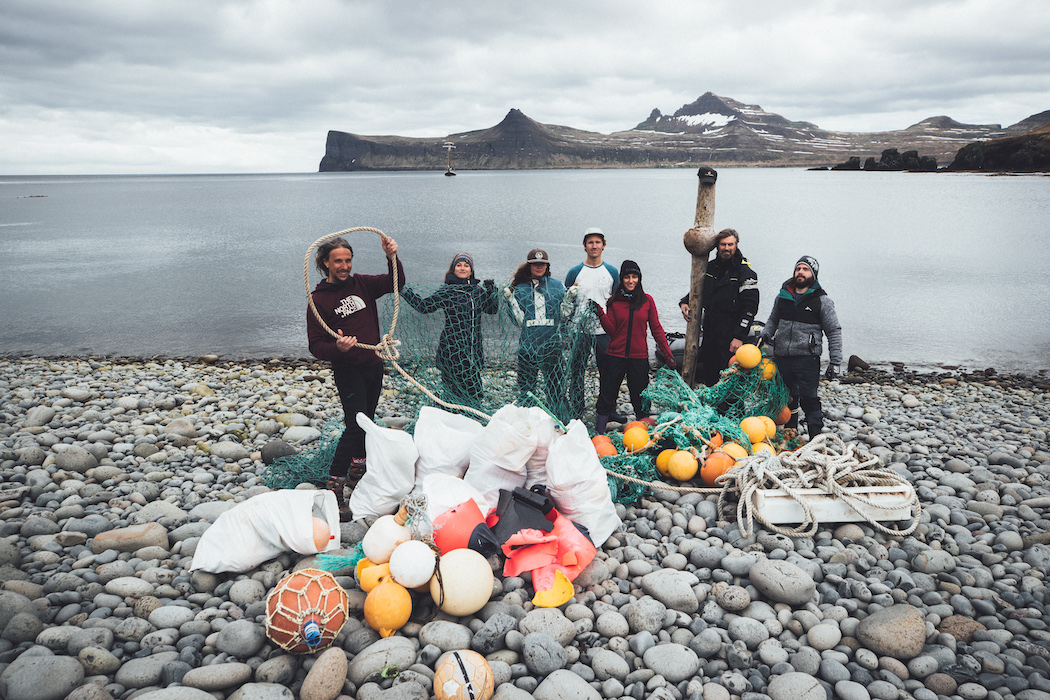Non-Profit on Edge of Arctic Circle Inspires Hope For Change
“Every second breath we take comes from the oceans, that’s a fact.”
When Belén García Ovide talks about the oceans you can feel her getting carried away: sometimes with facts; always with argument; continually with enthusiasm. In all her discourse, however, the recurring theme is one of hope.
García Ovide is a marine biologist, and she is also the Founder and Project Manager of Ocean Missions, an ocean-focused NGO based in Husavik, Iceland, almost at the edge of the Arctic Circle. Husavik is a small fishing town in the far north of the country, which also happens to be its whale watching capital, and is also now one of the latest additions to Plastic Oceans International’s BlueCommunities program of international partners.

Belén García, founder of Ocean Missions.
Ocean Missions was conceived by García Ovide in 2018, and then launched in 2019, as “a mix between frustration and opportunity. I could see what was happening with the oceans,” she explains, “and I felt stuck, and I knew I couldn’t just continue like that. So forming the organization, and getting to work was a survival thing for me. The things I was seeing were affecting me a lot, and I just had to get involved, and make a difference. So I put together my passion and my skills as a marine biologist – and established Ocean Missions.”
OM focuses on conservation, primarily by inspiring people to take action to protect the oceans. Using a combination of science, education and sailing, the team conducts two expeditions a year using a beautiful traditional schooner with a hybrid system, drawing international collaborators from all over the world. The journeys undertake scientific research which is then fed back into a database of local and international institutions, but really are driven by inspiration, and demonstrating the beauty of the oceans, as well as what we can do to help them.

Collaborators from around the world help with the variety of projects in Ocean Missions.
“One of my most important memories was with this young girl who joined us on one of our first expeditions,” says García Ovide. “We were sailing for a week and at the end she came to me crying, and she looked at me and told me that thanks to us she had hope again. That young girl was ready to give up, just like I was, and the time we spent together on the ocean helped her realize and believe that she could get out there and make change herself. You see, almost everyone wants to make a difference, but too often they don’t know what to do, so Ocean Missions presents an opportunity to choose a different way of tourism – to give back to nature, to engage in slow travel, sailing with a purpose. ‘I am learning, I am sharing, I am participating, I am contributing – I am giving back to nature.’ And the feeling is completely different when you do that. Hope is necessary, if we want to save this planet. It may be what we need the most.”
As well as the sailboat expeditions, OM also drives local programs which involve locals and tourists. These shorter expeditions are for everybody, for all different ages and nationalities, and serve and help individuals to get a perspective outside of themselves and make a difference both in terms of actions – such as with beach cleanups and microplastic surveys – but also by helping people realize what they are innately capable of.
The team of four, in fact, have recently delivered new results on microplastic pollution in Iceland, and hope to use these statistics to advocate for greater plastic controls in the country. As well as these studies, they contribute to seabird and whale research and carry their own studies on plastic pollution (both micro and macro) and effects on the marine trophic chain.
Additionally, and in association with Mission Blue, they are creating the first Hope Spot in the country, as recognition for a region of outstanding biological diversity, which they will also use to push the authorities to establish the country’s first Marine Protected Area.
García Ovide is forthright as she speaks: “The oceans are suffering – we can’t ignore it. Overfishing and climate change, and plastic pollution. We take so much from nature, and I think it’s time for people to give back, to say thank you, to say we care, to say we are a whole unit here on earth.

The Ocean Missions team shows the diverse items that put the ocean’s wildlife at risk.
It was what made the motivation to join the BlueCommunities network so obvious for Ocean Missions: “We have to team up until the efforts we make are greater than the damage that is being caused. That involves coming together. BlueCommunities is the perfect example of that motivation.”
Andrea Torres Saa, Plastic Oceans International’s Regional Director for Europe, agrees: “Our strength is our collective strength. It’s about what we can do as one and also the force we derive by realizing that we are not alone in this project for change. Seeing and experiencing the work of Ocean Missions helps to give me and so many others the belief that we can do this, day by day, hour by hour.”
García Ovide is good at generating belief, perhaps because she herself struggled so much until she came to find her answers and her project: “You don’t have to be a marine biologist, you don’t have to be a politician,” she says, “use the tools you have. It’s not about what you do, it’s the simple act of doing. The best that we can do is to give the best of ourselves.”
Ocean Missions may be based in what many would regard as a global outpost, but their work is anything but.
Giving the best of ourselves.
It’s that terrifyingly simple.
Jon Bonfiglio is a broadcast and print journalist, as well as Managing Editor for Plastic Oceans International’s written content.

Trackback: pglike
Trackback: faw99
Trackback: พรมรถ
Trackback: รับเขียนแบบบ้าน
Trackback: เช่าที่เก็บของ
Trackback: ชุดกระชับสัดส่วน